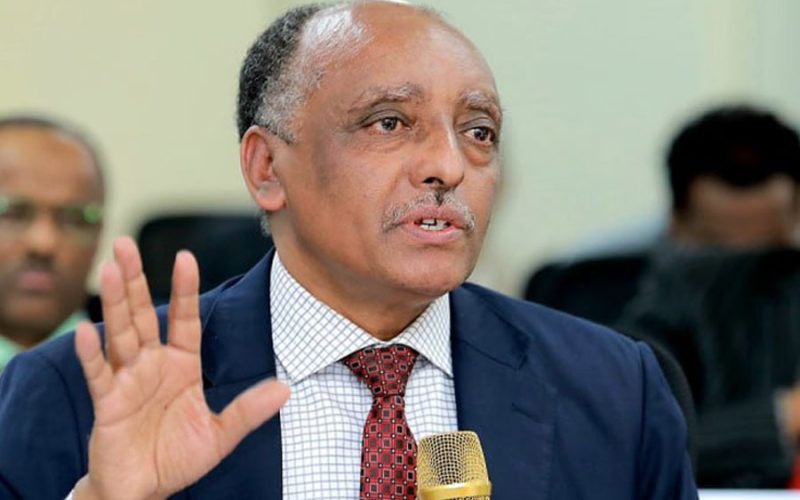Yohannes Ayalew, President of the Ethiopian Development Bank, has officially resigned from his position.
He stated that his resignation was “voluntary and due to personal reasons.” Following his departure, the bank’s Vice President, Mr. Getachew Wake, has stepped in to assume leadership responsibilities.
Experts in the financial sector have credited Yohannes Ayalew with guiding the Development Bank through challenging times, restoring stability, and overcoming complex issues that plagued the institution during his tenure.
Prior to leading the Development Bank, Yohannes had an illustrious career as Deputy Governor and Chief Economist at the National Bank of Ethiopia, earning him widespread recognition for his deep expertise in the Ethiopian economy.
Yohannes became a board member of the Ethiopian Development Bank five years ago, and when the previous president, Haileyesus Bekele, vacated the role, Yohannes stepped up as the new president.
He led the bank’s operations for four years, implementing significant policy reforms. His leadership has been widely reported, which highlighted his crucial role in reshaping the bank’s future.
Before Yohannes assumed the presidency, the Development Bank of Ethiopia faced severe financial challenges, sparking debates over whether the bank should be shut down.
At the time, the bank’s non-performing loan (NPL) ratio had soared past the 15 percent regulatory limit for development banks, reaching a staggering 57 percent.
In monetary terms, this equated to 27 billion birr in bad loans, putting the institution in dire straits.
Despite these challenges, Yohannes, who mentioned health concerns as a reason for his resignation, successfully managed factories that had outstanding loans.
He played a key role in assisting banks that were grappling with capital issues, securing additional loans to alleviate their financial distress.
Furthermore, he spearheaded the establishment of joint ventures for several struggling factories, bringing them back into profitability and significantly reducing their debt burdens.
Under Yohannes’ leadership, the Development Bank of Ethiopia saw a dramatic turnaround in its non-performing loan ratio, which dropped from 57 percent to 6 percent—well below the regulatory limit of 15 percent.
This marked a significant achievement, as the bank not only stabilized but also became profitable on an annual basis.
When Yohannes took over, the bank’s net assets were valued at just 3 billion birr. Today, under his stewardship, the institution’s net assets have grown to an impressive 40 billion birr.
Additionally, the bank’s total capital has surged to 182 billion birr, showcasing the substantial financial growth the institution has experienced during his presidency.
